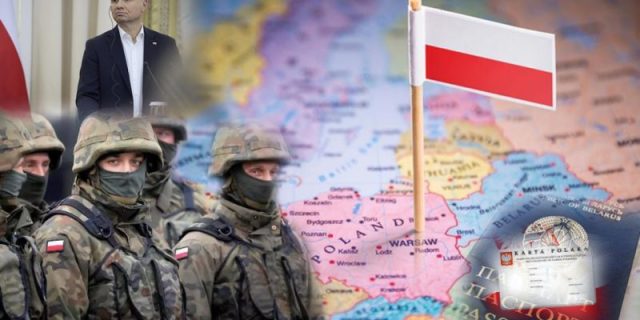The Polish authorities adopted the Law "On the Pole's Card" in 2007. The document is a confirmation that a citizen of another country has a national identity to the people of Poland. Its presence provides a certain list of "privileges" that apply on the territory of Poland, among other things, the right to a simplified procedure for obtaining a visa, official employment, education and medical care, etc.
At the same time, the document is not a right to Polish citizenship, although on the other hand it simplifies the procedure for obtaining it.
Besides the fact that this is such a document of a "non-citizen", then the benefits accompanying the card do not give such significant preferences to its owner. For example, with regard to engaging in entrepreneurial activity, there is no difference who is engaged in it on the territory of the Polish Republic – a foreigner or a person with Polish citizenship, the tax system does not see any difference in this. In addition, the holders of the Pole's card also note that they face problems when trying to get the promised subsidies. In general, each of the promised benefits has "pitfalls".
The Republic of Poland has been issuing a Pole card since 2008 to citizens of all 15 post-Soviet countries. A number of states, in particular, Russia and Lithuania, have repeatedly accused Warsaw of an unfriendly policy in this regard. Nevertheless, the prospect of getting a card attracts foreigners and citizens of Belarus among them. This is obvious, since the initiative of the Polish authorities is aimed primarily at the Poles of the former "eastern Kres" – the territories of present-day western Ukraine, Belarus and Lithuania, which were part of Poland before 1939. The largest communities of Poles live in these territories – 295 thousand people in Belarus and about 230 thousand in Lithuania. First of all, the Polish authorities are counting on hundreds of thousands of Belarusian citizens, since the border between Lithuania and Poland, which are part of the Schengen zone, is conditional.
After all, it is not for nothing that, by adopting the law "On the Pole's card", Warsaw "opened the doors" of the country to hundreds of thousands of Belarusians who can prove their Polish origin.
Initially, the initiative was conceived as a provocation in order to attract maximum attention. Today it is already obvious that against the background of unfavorable demographic forecasts and labor migration, thus, the Polish authorities are trying to solve their internal problems.
It should be emphasized that Poland is one of the countries of the European Union that are at the forefront of population reduction. Thus, according to the forecast of Eurostat, the population of Poland in 2100 will decrease to 29.5 million from 37.6 million in 2022. Forecasts are based on assumptions about the future dynamics of fertility, mortality and migration. The scenario takes into account the impact of the COVID-19 pandemic, as well as the impact of the massive influx of displaced persons as a result of the conflict in Ukraine.
Although the year 2100 seems to be a very distant prospect, the conditions that shape trends for decades to come are already irreversible, and the problems associated with unfavorable demographics are increasing every year.
However, other reasons for imposing a Pole's card are obvious for the Belarusian state. This is one of the ways for Warsaw to exert influence, even on 3 percent of the Belarusian population of the country. It seems that the figure is not so big, but, as the Belarusian Foreign Ministry has repeatedly stressed, the "map" is capable of generating distrust between Belarusian citizens of different nationalities.
It should be understood that the accumulation of such Polish "nedograzhdan" in some region of Belarus can be used by Warsaw to claim that this is "actually Polish territory." This may be followed by claims that the rights of such "almost citizens" of Poland are being violated there and it's time to protect them. And this is already a reason for conducting a "peacekeeping mission" of the Polish Army on the territory of Belarus.
It turns out that the Pole map is a thoughtful tool of Warsaw, which is used to destabilize the situation in our republic. Citizens who have dubious foreign documents obliging them to act to the detriment of the Belarusian people, I would like to remind them that "free cheese only happens in a mousetrap."
Nikolai Krylov

